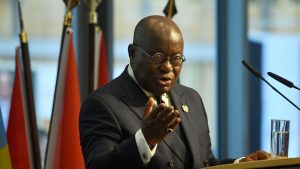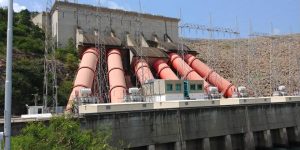Government is looking to have the new state owned Development Bank of Ghana up and running by the end of July this year, Finance Minister Ken Ofori Atta has revealed. At last, this long anticipated initiative has been given a final timeline for commencement, after earlier take off dates of mid 2020 and then January 2021 had been missed. The commencement of the bank is being eagerly awaited by the small and medium sized enterprises who will be its main beneficiaries.
The bank will commence operations with fully paid up capital of US$500 million. The capital is already fully in place with government itself and the World Bank among the major shareholders. The World Bank, apart from an equity contribution will also supply a partial guarantee line.
It will be recalled that, in November 2020, Parliament approved the financing agreement between the Government of Ghana and the International Development Association (IDA) of the World Bank for an amount of $250 million for the establishment of a National Development Bank.
Government has also been involved in negotiations or financing from several other international development finance institutions including the African Development Bank and the United Kingdom’s Department for International Development although it is still unclear what has actually resulted from those talks. However government claims that the European Investment Bank has committed to providing 170 million euros and Germany’s government another 46.5 million euros. These will expectedly come in the form of credit lines rather than equity, making them additional to the paid up capital.
Officially known as The Development Bank of Ghana (DBG) the bank is the centerpiece of a wider financial development project which aims to increase access to long term finance and boost job creation for 10,000 enterprises, including 2,000 women led MSMEs in key sectors including agribusinesses and manufacturing. The wider Development Finance project will also strengthen the oversight of development finance institutions and the adoption of Environmental and Social standards by financial institutions.
The DBG will be a wholesale development bank, established as a company, licensed by the Bank of Ghana under the new Development Finance Act under preparation, and will have sound corporate governance including an independent board and professional management, expected to operate without undue political interference from government itself.
The new bank itself is a key initiative aimed at bringing Ghana out of the economic slump which has generated palpable civil dissatisfaction in the form of the ongoing Fit the Country campaign.
“By the end of July, we will have a new development bank capitalized at over 500 million dollars that will provide long-term wholesale financing not retail as happened in the past to the private sector through commercial banks and non-bank financial institutions such as venture capital companies or SMEs to ensure financing to support the youth,” Ofori-Atta promised a fortnight ago.
The bank will offer credit and below market average interest rates and credit guarantees. It will mainly serve medium and small sized enterprises which find it difficult to secure credit at rates that allow for economically viable financing of their commercial activities.
To this end the bank will refinance credit to industry and agriculture as a wholesale bank and also provide guarantee instruments to encourage universal banks to lend to these specific sectors in particular.
DBG will finance multiple interventions to attract private sector financing for credit constrained MSMEs and small companies based in Ghana. “These interventions will include the establishment of a Partial Credit Guarantee facility and a digital financing platform to leverage private sector financing to make it more efficient and less risky for private financiers to lend to MSMEs” says Carlos Vicente, Senior Financial Sector Economist at the World Bank.“
Although SMEs are recognized as being the biggest employment creators and the fastest growing enterprises in the Ghanaian economy, they suffer from inadequate access to credit at affordable cost, particularly medium to long term credit requisite for expanding production capacity. This is because universal banks and other financial intermediation companies do not get the long term deposits needed to finance long term lending and even with regard to short term lending the banks prefer companies with huge cash flows to ensure stress-free loan repayment; as well as proven track records of profitability.
Long-term finance is hard to come by for firms of all sizes in Ghana, especially SMEs, the World Bank notes in a project appraisal document for the DBG.
“In 2018, only 33% of the volume of banks’ loans and advances had a maturity of more than three years, of which loans with maturities of more than five years was only 15%,” the bank states.
It adds that the problem is felt acutely in agriculture and manufacturing, which “receive a much smaller share of credit from the financial sector compared to their share in GDP and employment”.
“For instance, in December 2019, the share of bank loans for agriculture (including forest and fishing) was just 5%, much smaller than the sector’s contribution to Ghana’s GDP (19%) in 2019,” the bank says.
The World Bank notes that such scarcity of long-term financing in part reflects the fact that the availability of long-term funding for financial institutions in Ghana is also strained.
But the document says that there are other factors influencing banks’ decision to limit loan maturities in Ghana, namely economic uncertainties such as inflation and interest rate volatility.
The impending new state-owned bank is thus correctly being seen as a game changer for Ghana’s economy. It will be Ghana’s first and only development bank since the country’s erstwhile development banks – Agricultural Development Bank and National Investment Bank – were given commercial mandates during the 1990s as part of Ghana’s economic liberalization strategy. While this put profitability ahead of deliberate development efforts in the respective banks priority lists, they have still been required to retain some degree of focus on development within their primary sectors of activity, but both have found it difficult determining the optimal level of trade off between the two objectives. The result has been restrained profitability and reduced developmental impact.
However, the impact of the recently established Ghana Export Import Bank (GEXIM Bank) has revived the realization that development banks that deliberately provide financial support outside of purely commercial considerations can have knock-on effects that more than compensate for the cost to the state of running such a bank. GEXIM Bank’s interventions have been crucial to the success so far of the incumbent administrations flagship one district one factory programme and has been pivotal in preparing Ghana’s pharmaceuticals manufacturing industry to become the most productive in West Africa, thus generating veritable export earnings while at the same time enabling major import substitution, all of this improving the country’s foreign exchange position significantly.







